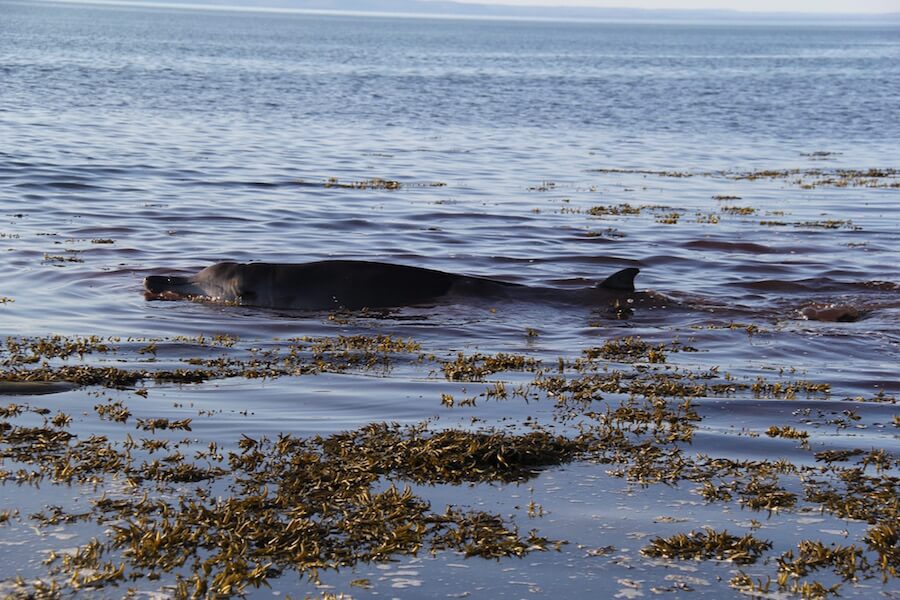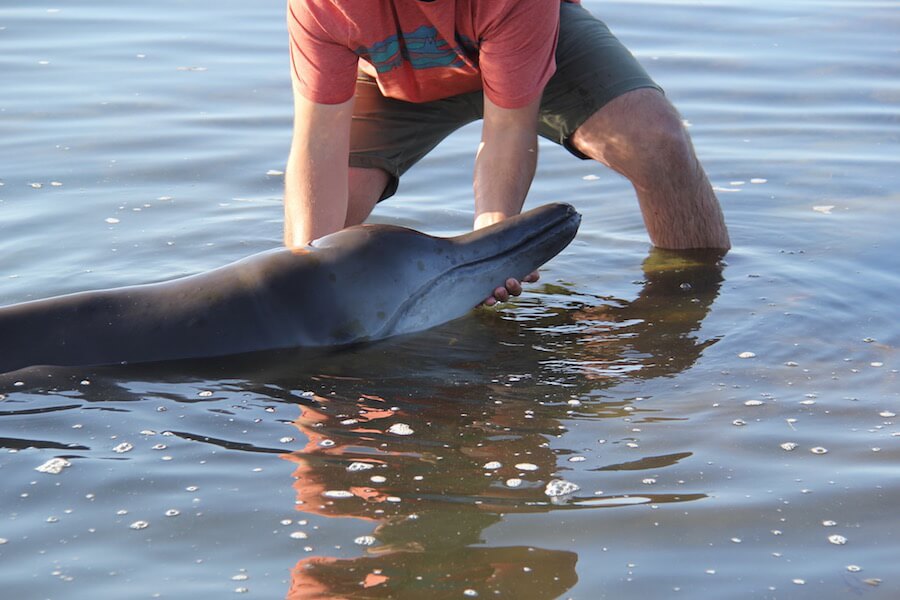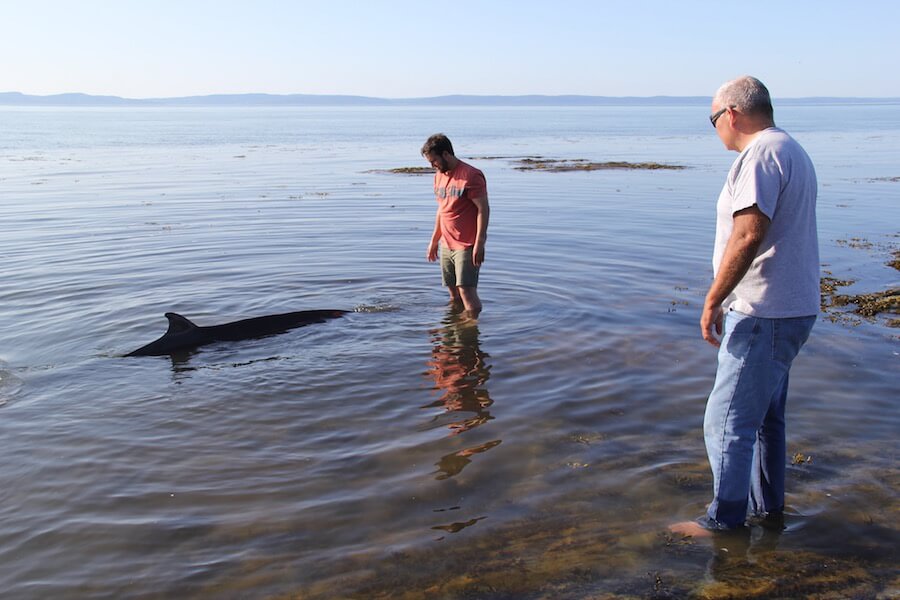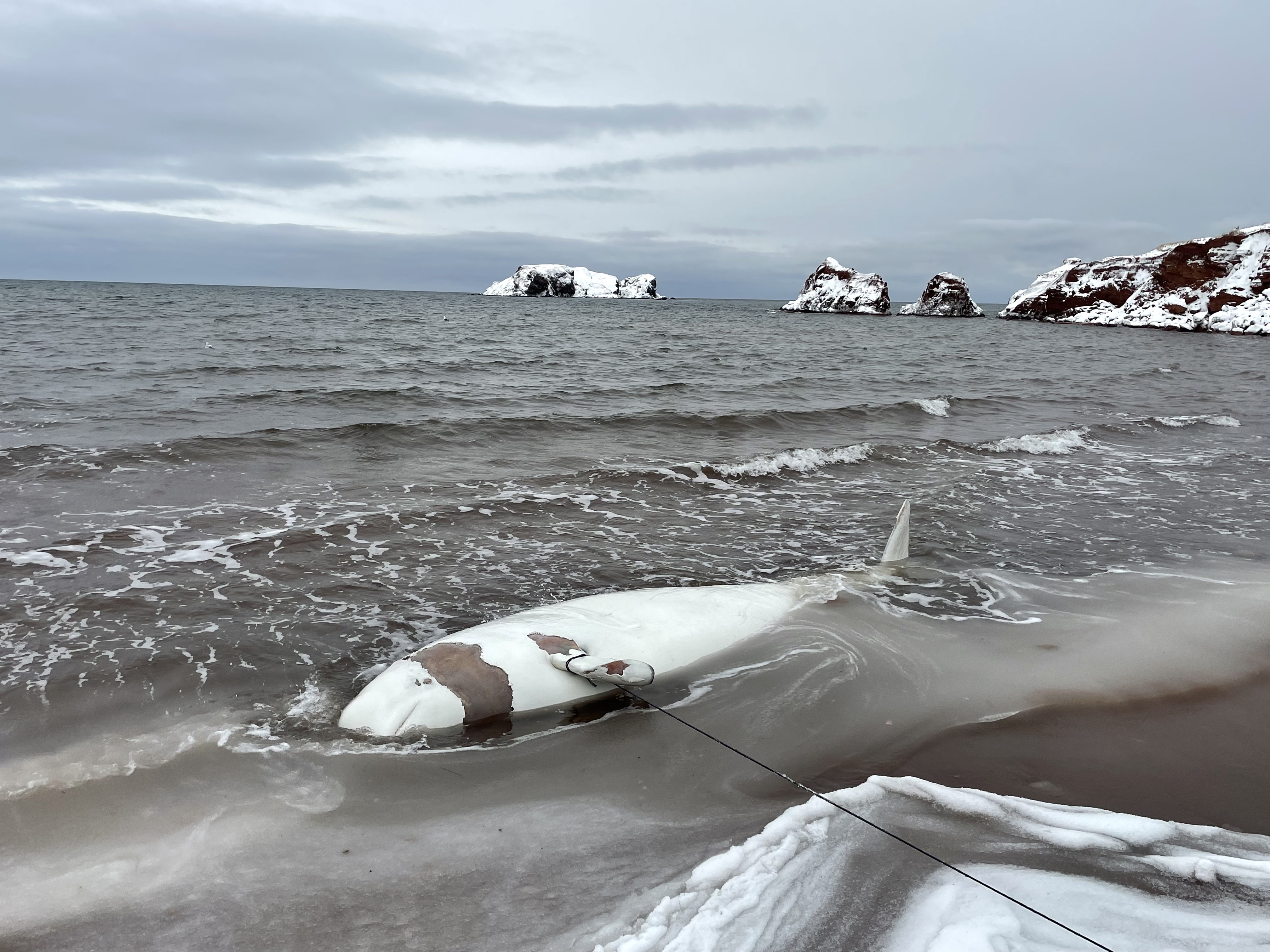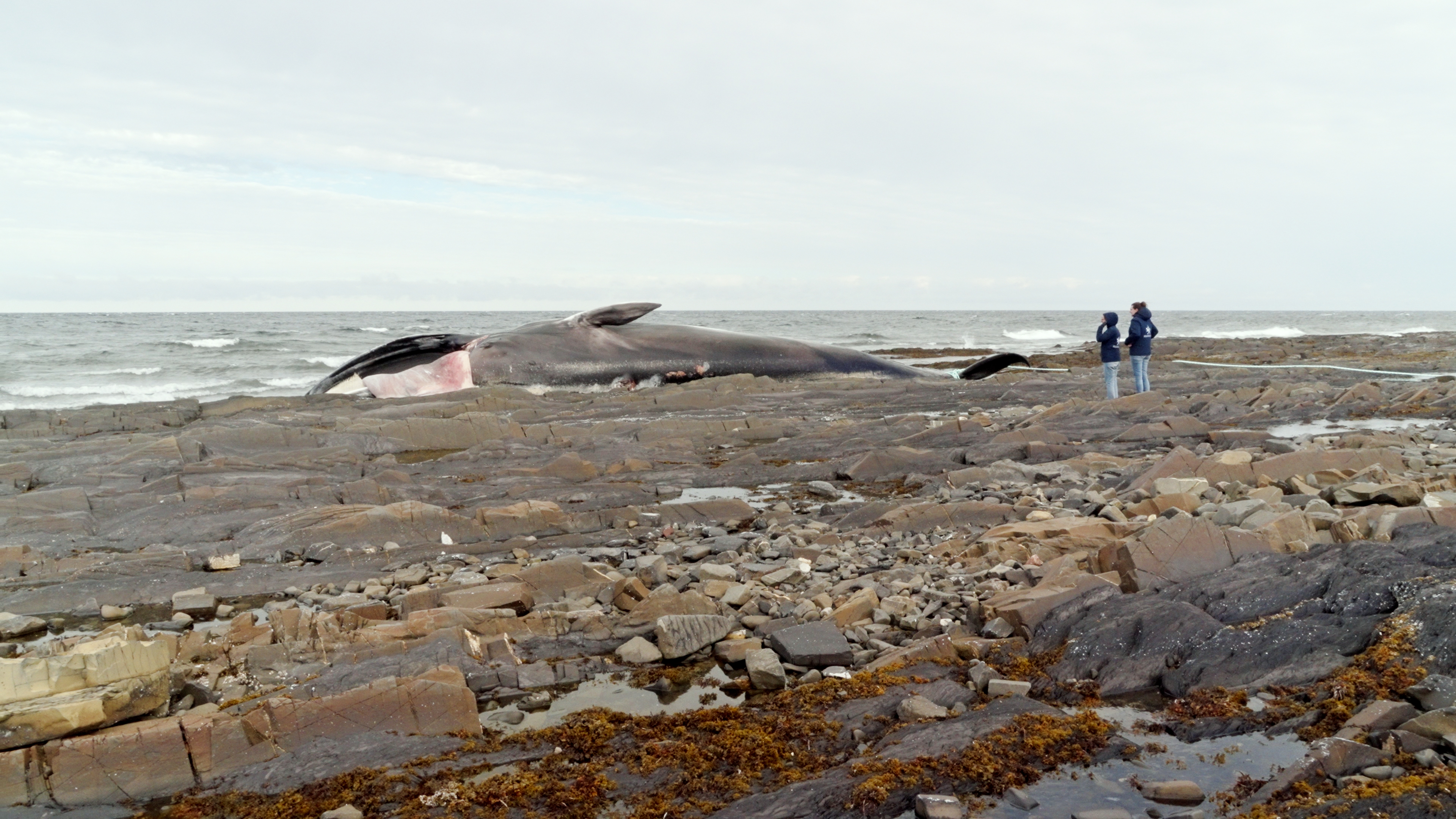On the afternoon of August 25, a beaked whale is observed dangerously close to the shores of Île Verte. The beaked whale is not quite stranded, but is in very shallow water. Biologist Pierre-Henry Fontaine, founder of Île Verte’s skeleton museum, is notified by fellow citizens. He in turn dials 1-877-7baleine.
“If you see a cetacean that is beached or on the verge of becoming stranded, the first thing to do is call 1-877-7baleine (1-877-722-5346),” says Mélissa Tremblay, manager of the call centre for the Quebec Marine Mammal Emergency Network. Techniques exist to increase the chances of a successful response. A specialized team can help on-site witnesses to intervene. The manoeuvres are not so straightforward and involve risks both for the responders as well as for the animal in difficulty. “In the past, well-intentioned individuals wishing to assist an animal have sometimes actually been responsible for its death.
The Quebec Marine Mammal Emergency Response Network contacts the Marine Animal Response Society – which has extensive expertise in helping marine mammals return to the water – for advice on the intervention. Veterinarian Marion Desmarchelier of Université de Montréal’s Faculty of Veterinary Medicine is also consulted.
Pierre-Henry Fontaine and his team attempt to guide the animal back toward the open sea. However, on several occasions, the cetacean returns toward the beach. “It’s as if it wants to run ashore. The intervals between its breaths were very short,” says Pierre-Henry Fontaine. After several attempts, the animal seems to regain its strength and begins to flounder. It heads out to sea, then breaths at least twice before diving and disappearing out of sight.
On August 26, volunteers patrol the shoreline in case the beaked whale returns to the island. For the time being, the whale has not been seen again.
If you see a beaked whale – whether live, vulnerable or dead – call 1-877-7baleine.
What is a beaked whale?
The term “beaked whale” does not refer to a species, but rather to a family. Likewise, we talk about “rorquals” for minke, fin, humpback and blue whales, etc. Beaked whales, which belong to the family Ziphiidae, number no fewer than twenty species. Very little information exists about this cetacean family: individuals seem to prefer waters far offshore and spend the majority of their time deep below the surface, which makes them very difficult to observe or even count during aerial surveys. Most knowledge of beaked whales comes from data collected from carcasses.
Identifying beaked whale species is challenging: shape, size, rostrum length, position of the teeth and, ultimately, genetics must be observed. When it’s a live, struggling animal, this is extremely difficult. “The animal we helped was small – about 4 metres – with a long, pointed rostrum. It had no teeth and was rather brownish in colour. It might be a Sowerby’s beaked whale,” says Pierre-Henry Fontaine. Photos were sent to whale experts for identification. It was then identify, based on the length and shape of the rostrum and brownish colour, as a Sowerby’s beaked whale.
The northern bottlenose whale is one of thirteen species of cetaceans found in the St. Lawrence. However, it is extremely rare to observe living specimens of this species. Several species of beaked whales have been discovered on the shores of the St. Lawrence: northern bottlenose whales were found stranded in 1940, 1994 and 1997, and Sowerby’s beaked whales were found dead in Forillon Park in 2006, on Île aux Pommes in 2013, in Escuminac in 2016 and in Rivière-au-Tonnerre in 2018. In 2017, two True’s beaked whales were found stranded in the Magdalen Islands.


